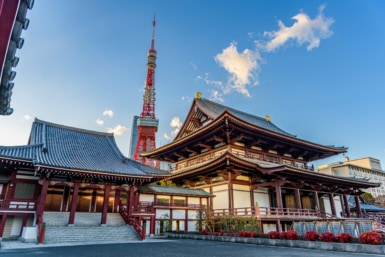Getting a tax deduction is nice, but getting an entire tuna to go with that deduction is even better.
If someone told you that you could get two steaks to go with a tax break, you’d probably be a bit suspicious. But that’s one of the possible benefits to be garnered from Japan’s Furusato Nozei program. Literally translated, furusato nozei means “hometown tax,” so you wouldn’t be blamed for assuming that the program didn’t apply to foreign nationals. But in fact, the program behind Furasato Nozei has little to do with a person’s hometown and isn’t a type of tax at all. What’s more, foreign residents of Japan who work and pay taxes here are just as entitled to participate as the Japanese.
The program was launched in 2008 as a way for a person to make a charitable donation to a municipality or prefecture of their choice—whether or not it was their hometown. Donors can even specify the purpose for which they want the money to be used: educational projects and helping the elderly are two examples. Beyond the feel-good aspect, though, there are two benefits that make donating all the sweeter.
A Win-Win Situation
The first of these is that donations are tax deductible: depending on how much you donate and your household’s income, you can claim back almost the entire donation. In general, the more tax you pay, the more you can claim back under donations to the Furusato Nozei program.
The other benefit wasn’t originally intended to be the main incentive for donations, but over the years it may have eclipsed the tax deduction aspect in the eye of the public: The municipalities and prefectures often send back “thank you” gifts to donors, typically in the form of local products and specialties. A tax break and return goodies into the bargain—what’s not to like?
Critics of the system say that the thank you gifts mean that many people are donating for the wrong reasons, thus taking away from the original spirit of the program. In fact, some municipalities make a point of refusing to send out return goods, and simply thank donors with a letter.
Regardless of what the critics say, the Furusato Nozei program continues to grow. Total donations in 2012 reached ¥13 billion—more than double the amount in 2008, when the program began. Another thing to note is that the system helps, to some extent, to distribute wealth from the populous larger cities to more rural areas.
So how can you participate? For starters, you are going to need to be fairly comfortable reading Japanese, or have a friend or family member who can help you navigate your way around the website devoted to the program, “Furusato Choice”: www.furusato-tax.jp.
From here you can choose how to donate your money, based on the area, the kind of project you want to support or the type of return gift you want. There is also a special section for donations to areas hit by natural disasters and in urgent need of support. (At the time of writing, there was a call for donations to places in Ibaraki Prefecture recently hit by heavy flooding.)
The Fine Print
Making the donations is only part of the process. In order to get a portion of your donation refunded, you will need to follow the appropriate steps. From this year, one of these includes giving information on My Number and other ID, so be prepared.

Carnivores rejoice: Two kilos of sirloin steak from Mogami, Yamagata Prefecture, are yours to sink your teeth into for ¥10,000
There are two ways to file for your refund. For people whose taxes are filed for them by their companies, or those who don’t need to submit paperwork to claim back money for large medical payments or house loans, the newly established “One Stop Tokurei Shinsei” option allows for donations to be credited against future residential tax payments for the following year. There are a few catches, including the fact that you can only donate to up to five different places in one calendar year, but you can give as much as you like—and as many times as you like—to each of those five locations.
For the rest of us, the process of claiming back donations via the annual tax return is relatively simple. Donations can be noted as deductions on your return, and claimed against tax paid.
One change from April last year is that the percentage of residential tax that can be claimed back was raised from 10% to 20%. According to an official at the Ministry of Internal Affairs and Communications, simply put, this means if you pay ¥100,000 annually in residential tax, you can claim back up to ¥20,000 via donations. However, he noted that the amount that can be claimed will vary according to income, your spouse’s income and the number of people in your household. (There are examples on the website of how much you can donate and how much you can expect back based on various income and household scenarios.)
In order to claim any deductions, your total annual donations must total at least ¥2,000. But considering the variety of return gifts on offer, we don’t think that it will be difficult to go over that amount … So, here’s to your new “hometowns,” and happy deducting!
Furusato Nozei: A Gift That Keeps on Giving
From food to unique experiences, there are plenty of gifts on offer through the Furusato Nozei program. Here are some of the ones that caught our fancy:
Mogami, Yamagata (¥10,000)
2 kg sirloin steak
Kitakami, Iwate (¥5,000 or more)
Snow (!) from the ski fields
Yaotsu, Gifu (¥500,000)
Guided matsutake (gourmet mushroom) picking trip
Tsubame, Niigata (¥100,000)
Pair of gold tumblers
Bizen, Okayama (¥30,000)
Nescafé Gold Blend Barista
Ogaki, Gifu (¥40,000)
Paraglider excursion for one
Numata, Hokkaido (¥50,000)
A night for two at Horoshin Onsen Ryokan
Yaizu, Shizuoka (¥500,000)
An entire tuna
Iga, Mie (¥50,000)
Ninja outfit
Fukuyama, Hiroshima (¥10,000)
Bouquet of roses
Suzaka, Nagano (¥20,000)
Three-bottle wine set
Ogimi, Okinawa (¥30,000)
Hand-made shisa
(lion dog) statue
You can check out all of the options at
www.furusato-tax.jp
For specific options that allow you to donate to Kumamoto quake relief efforts, you can go to the following page on their site:
www.furusato-tax.jp/alert_list.html
Updated On May 18, 2020









